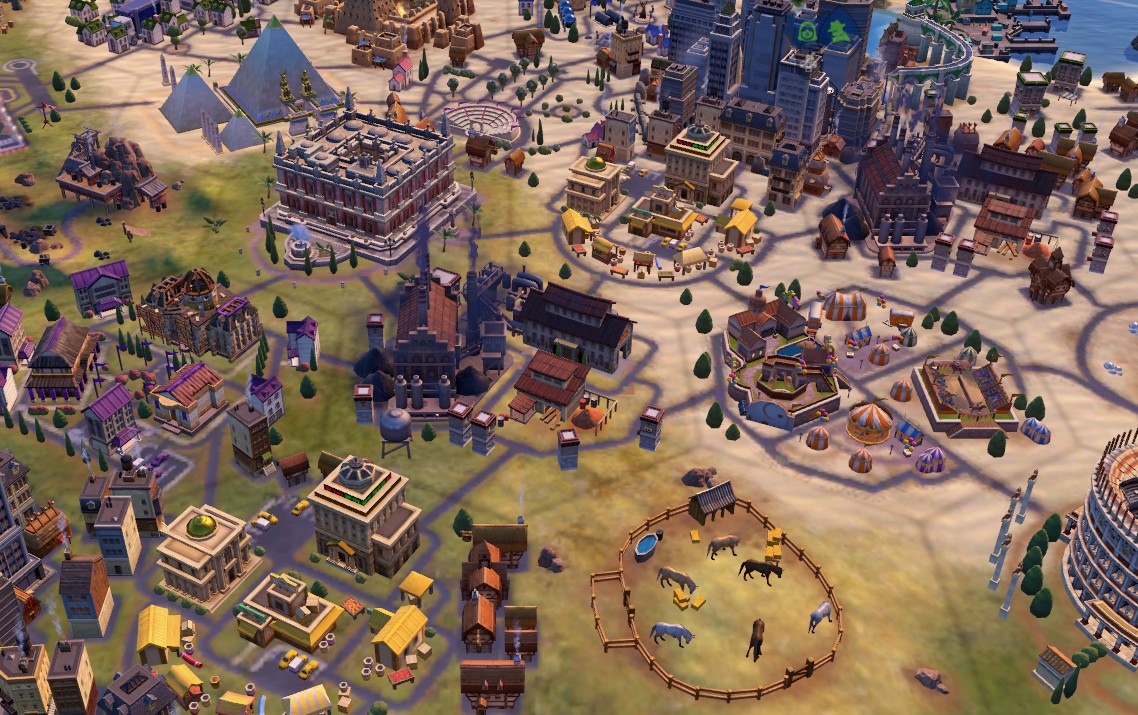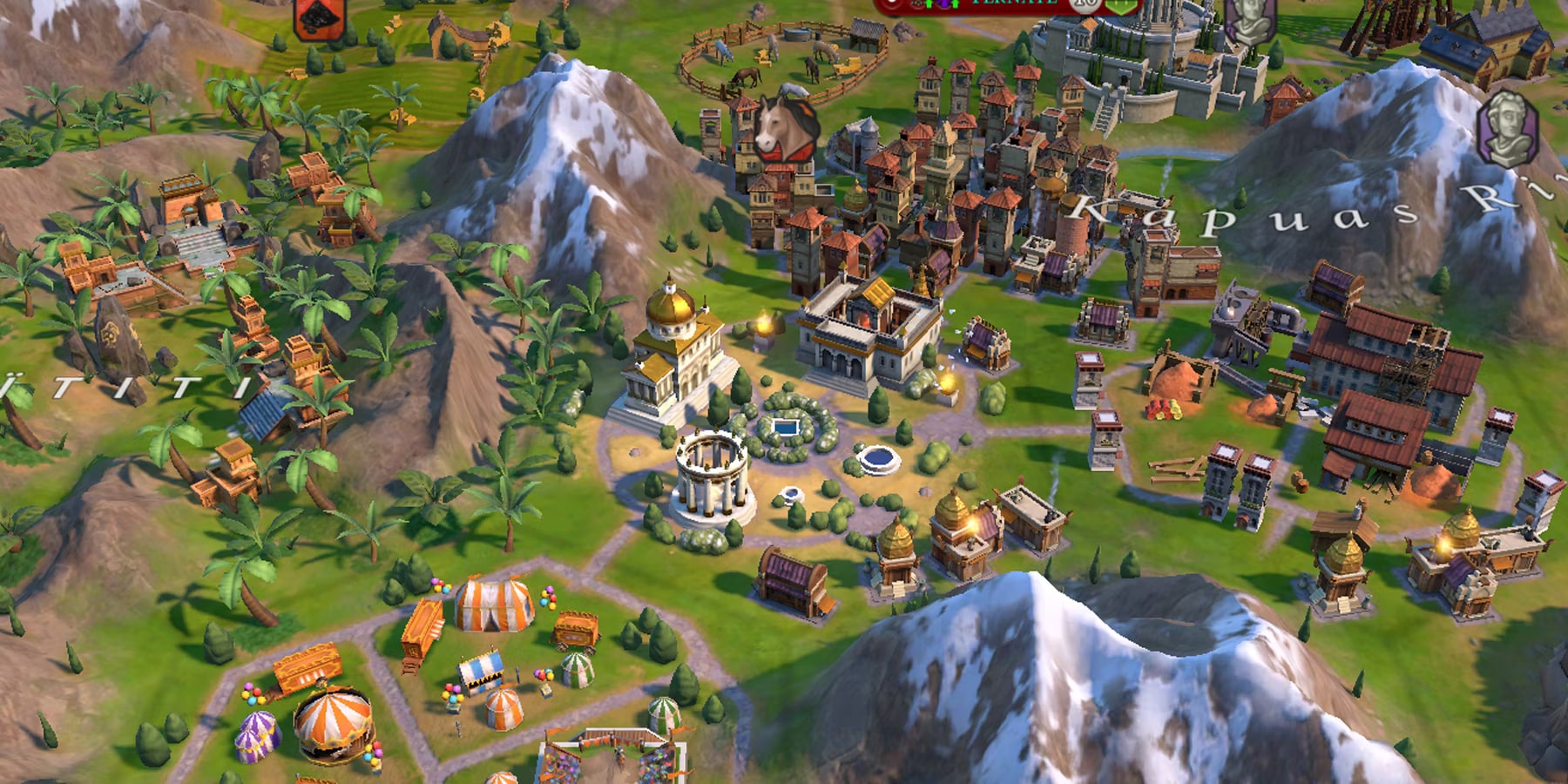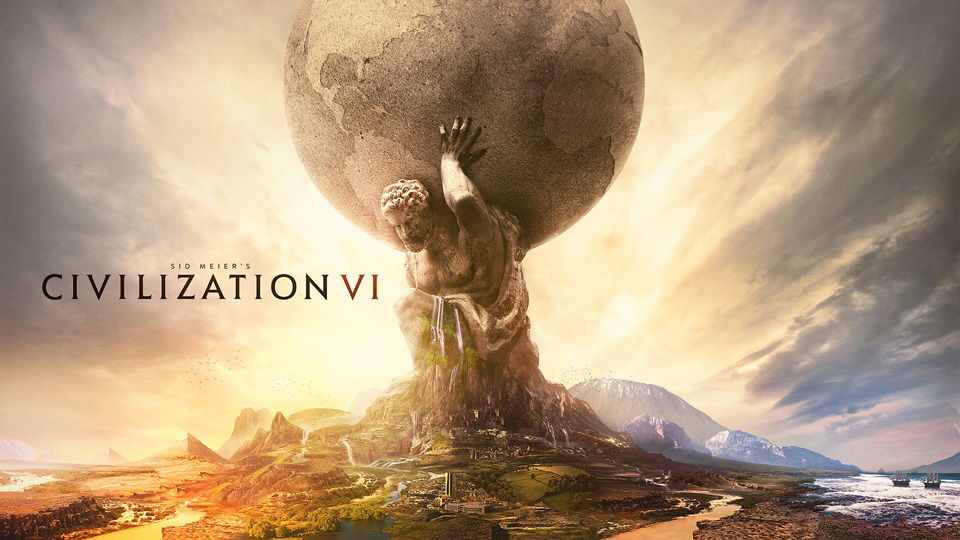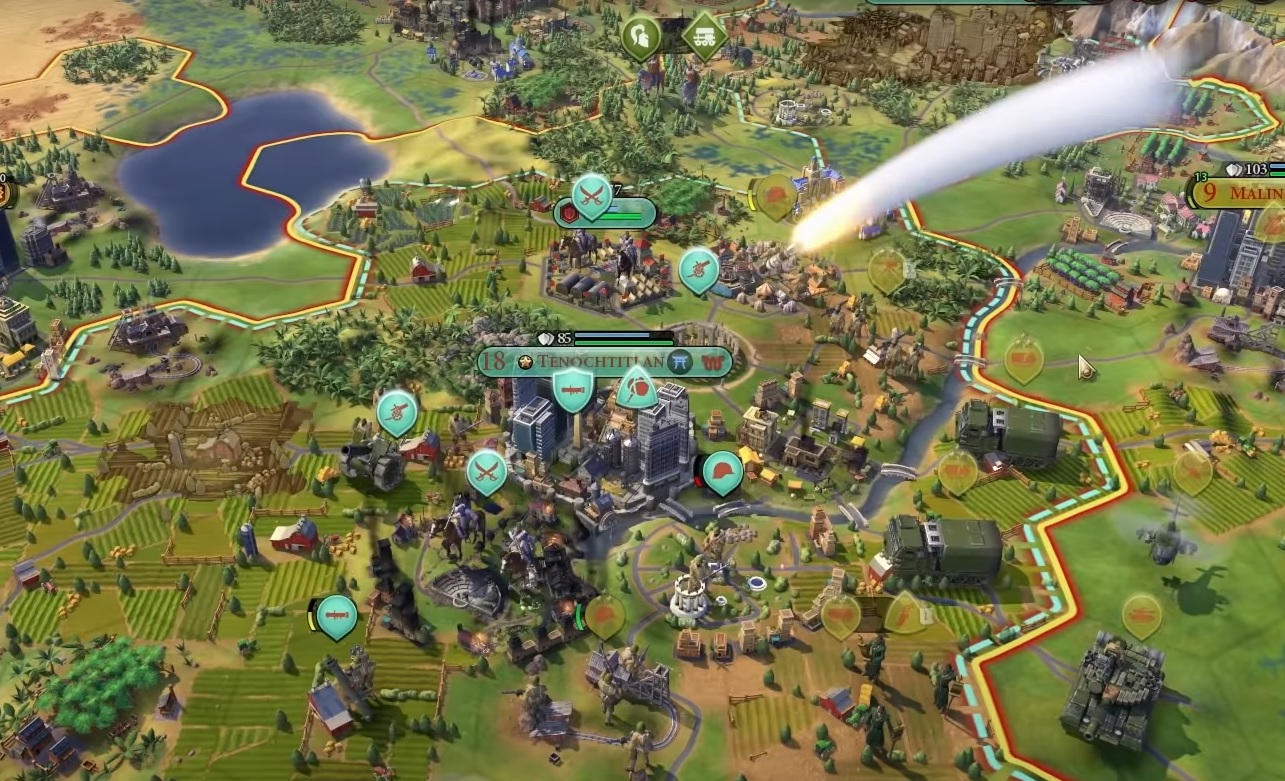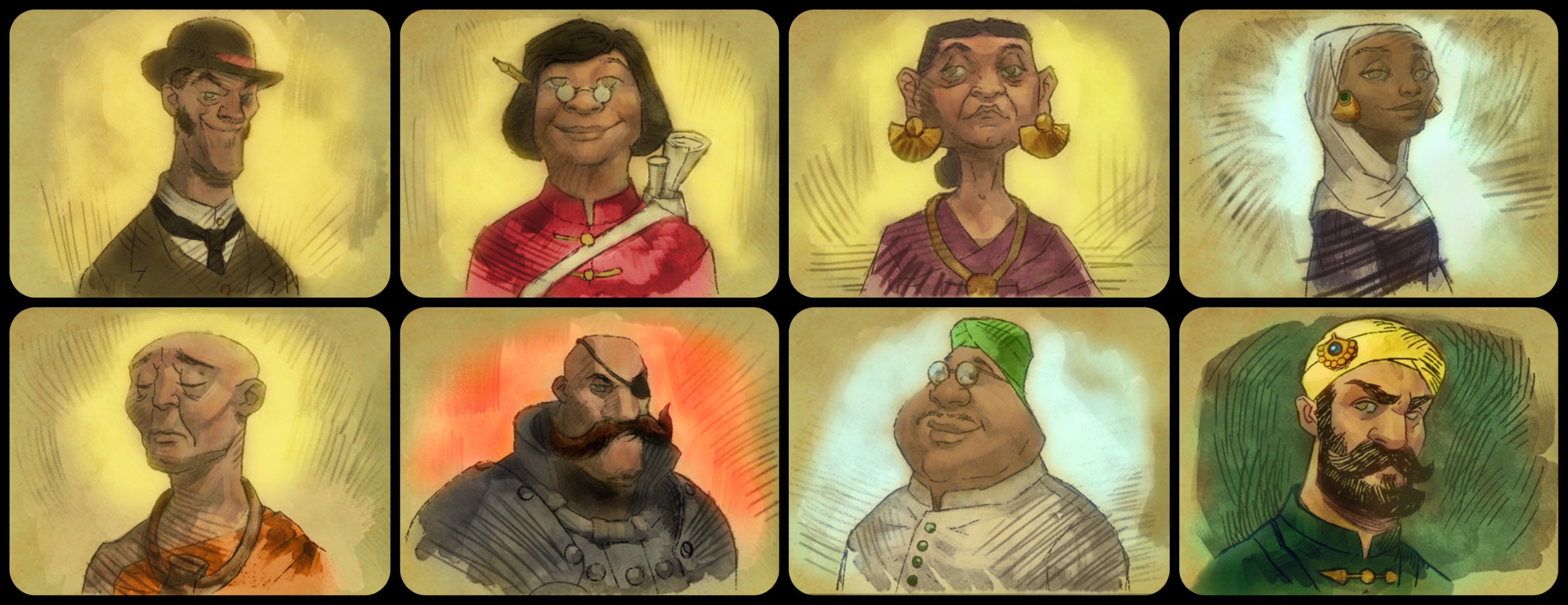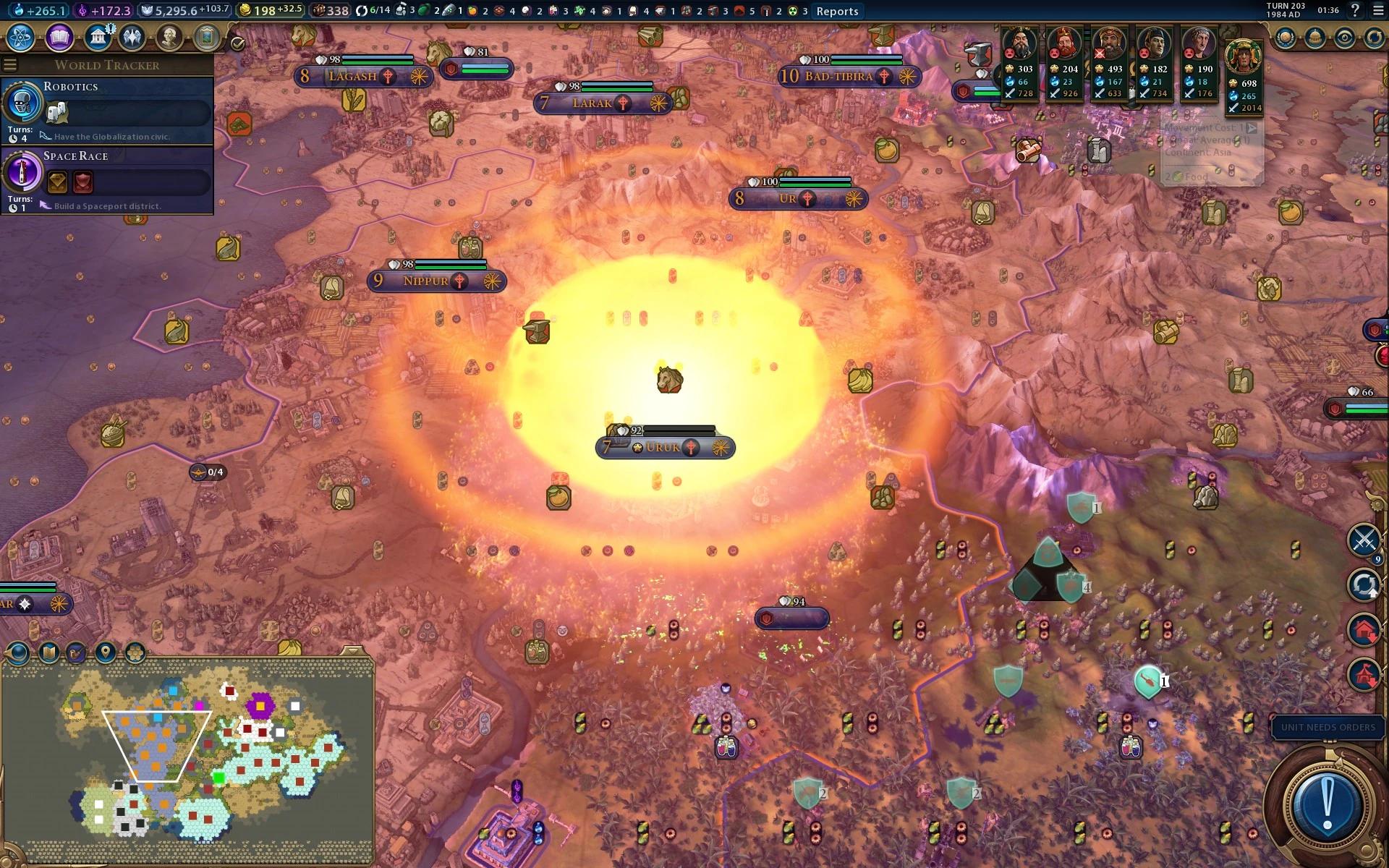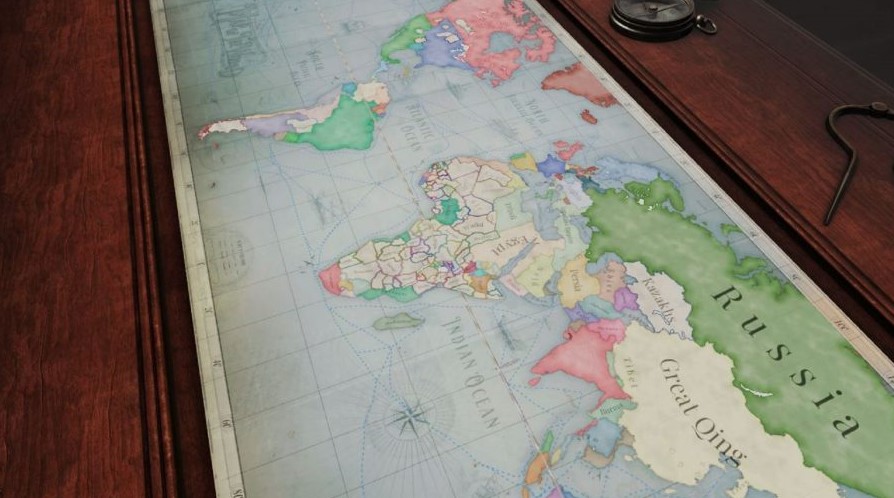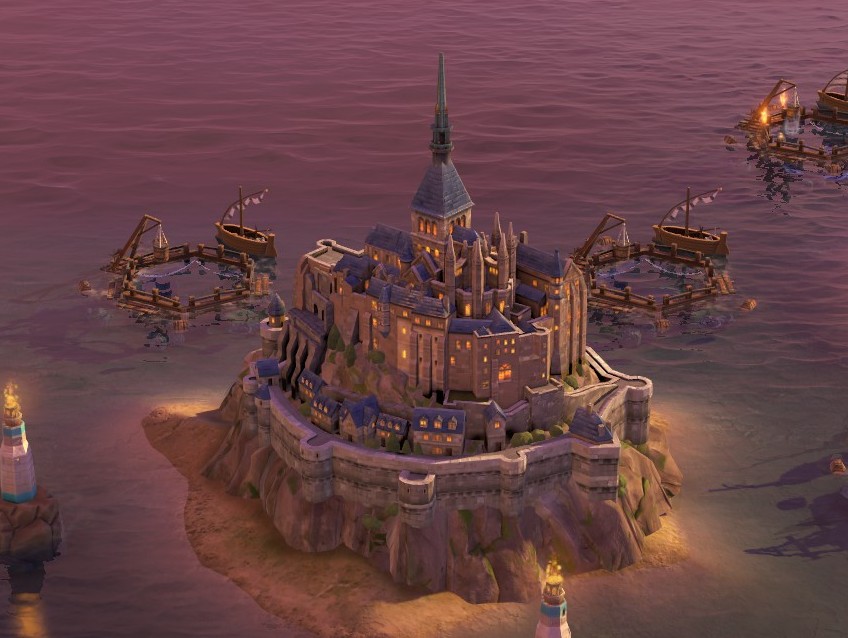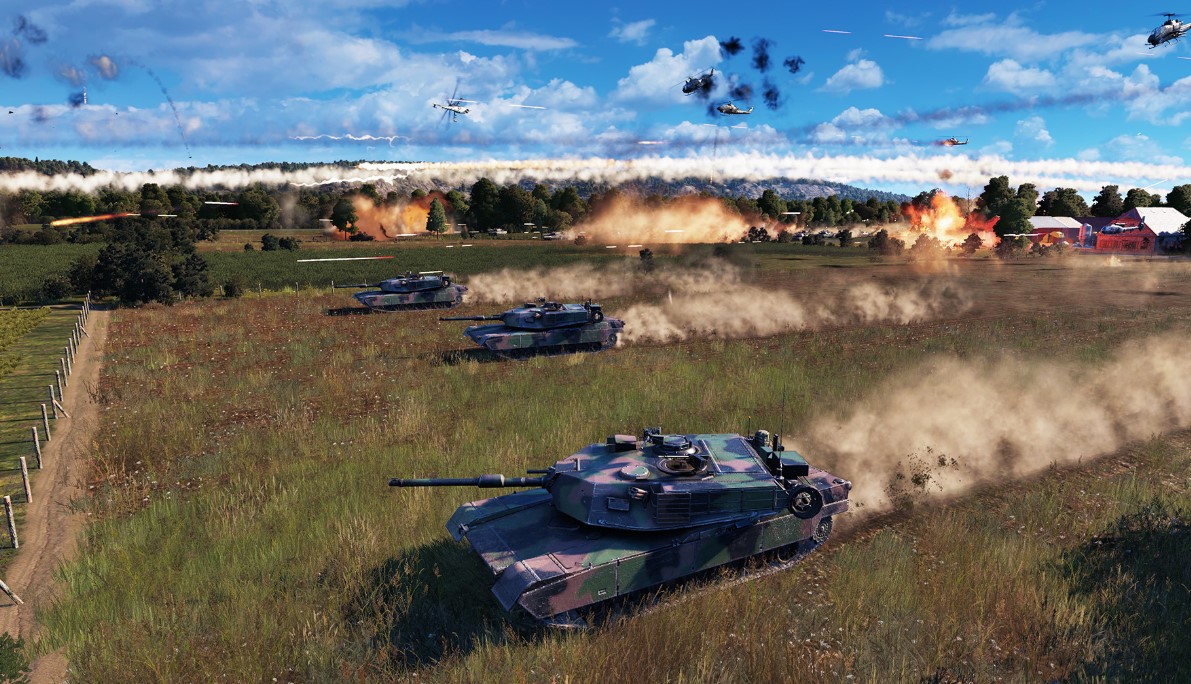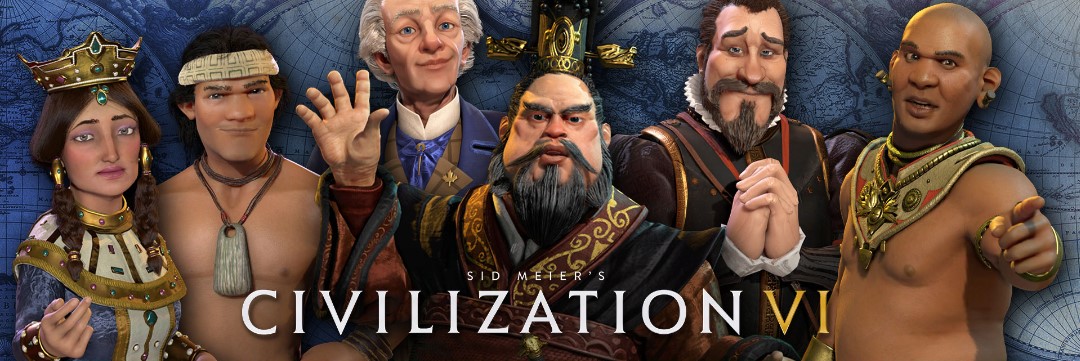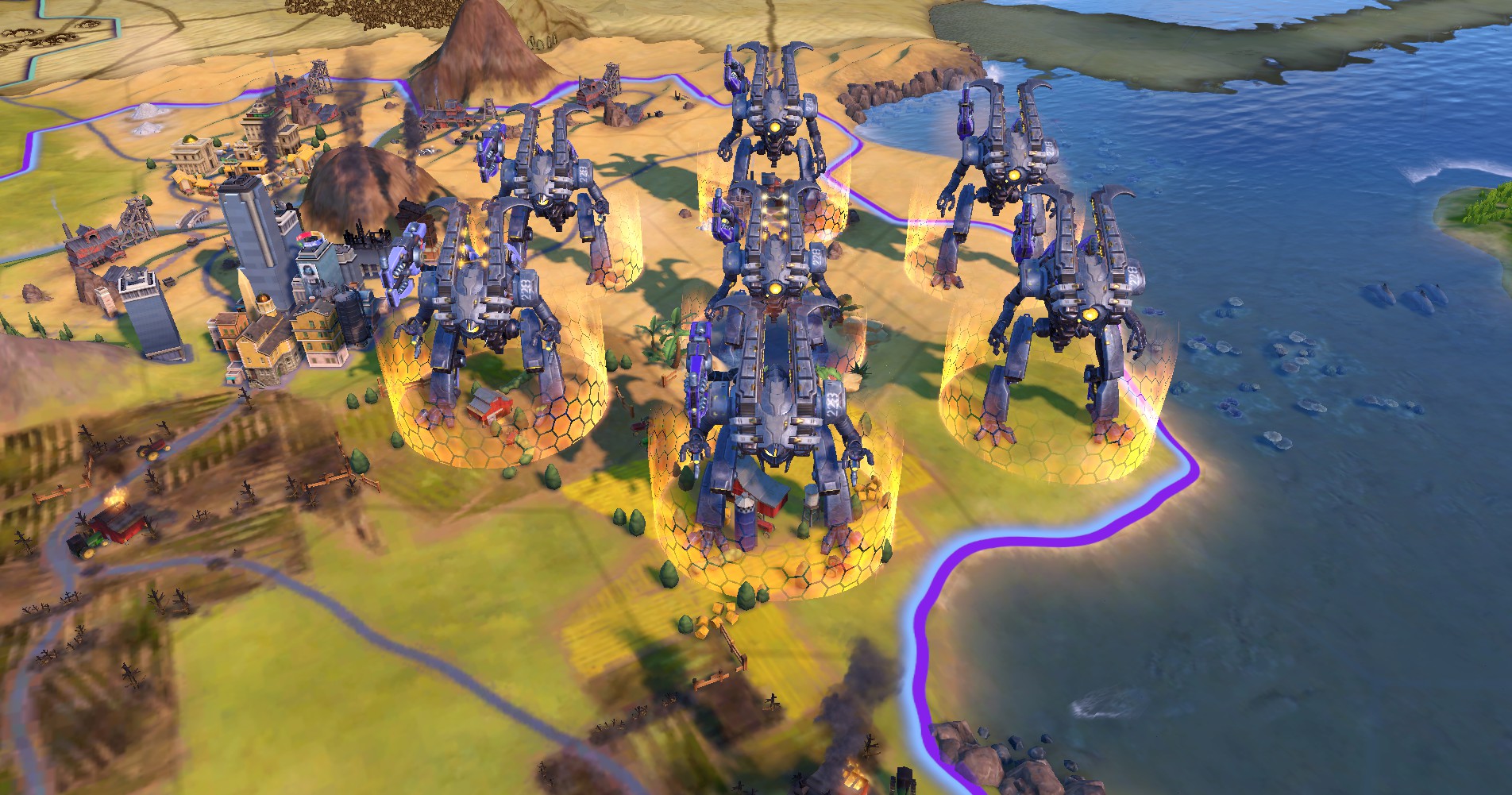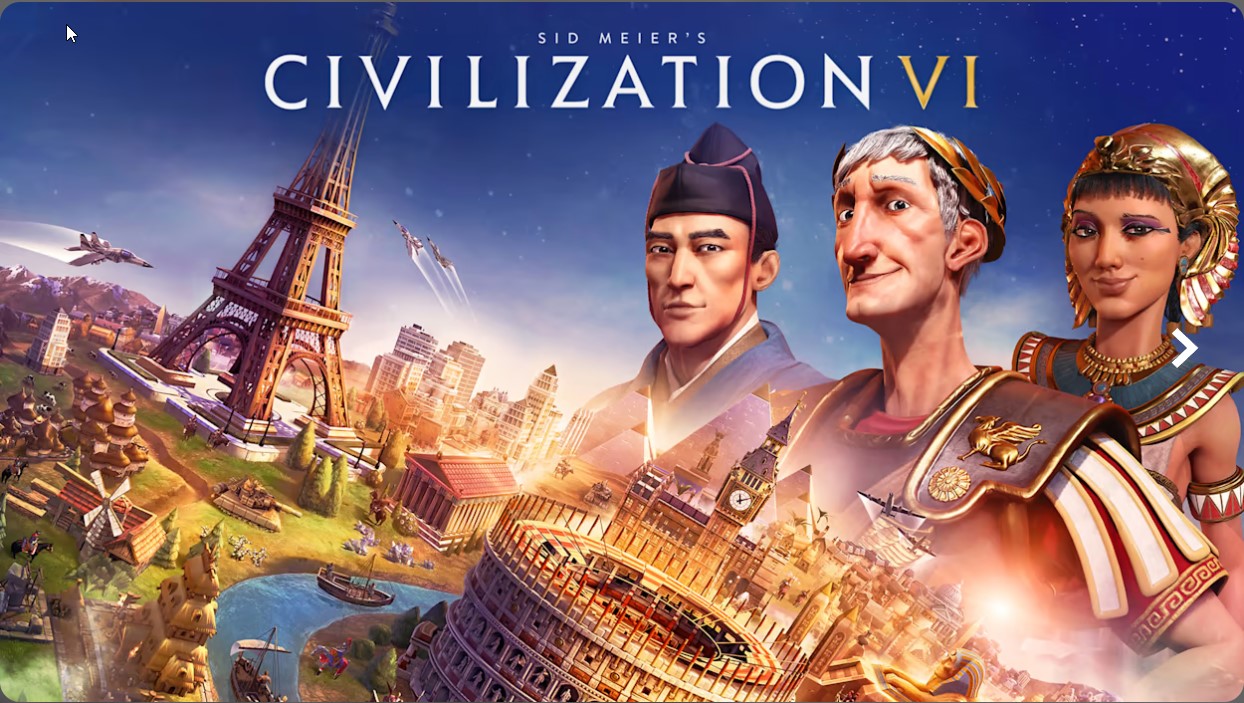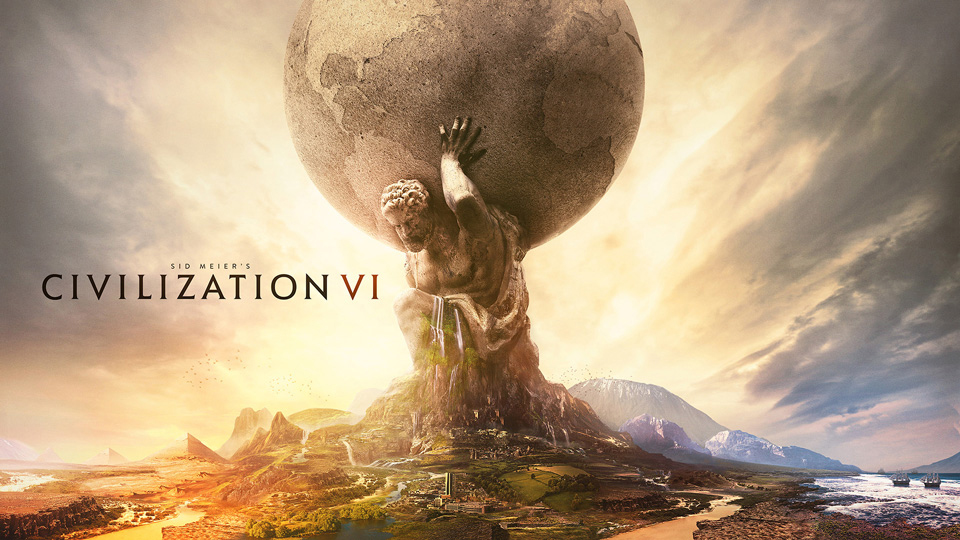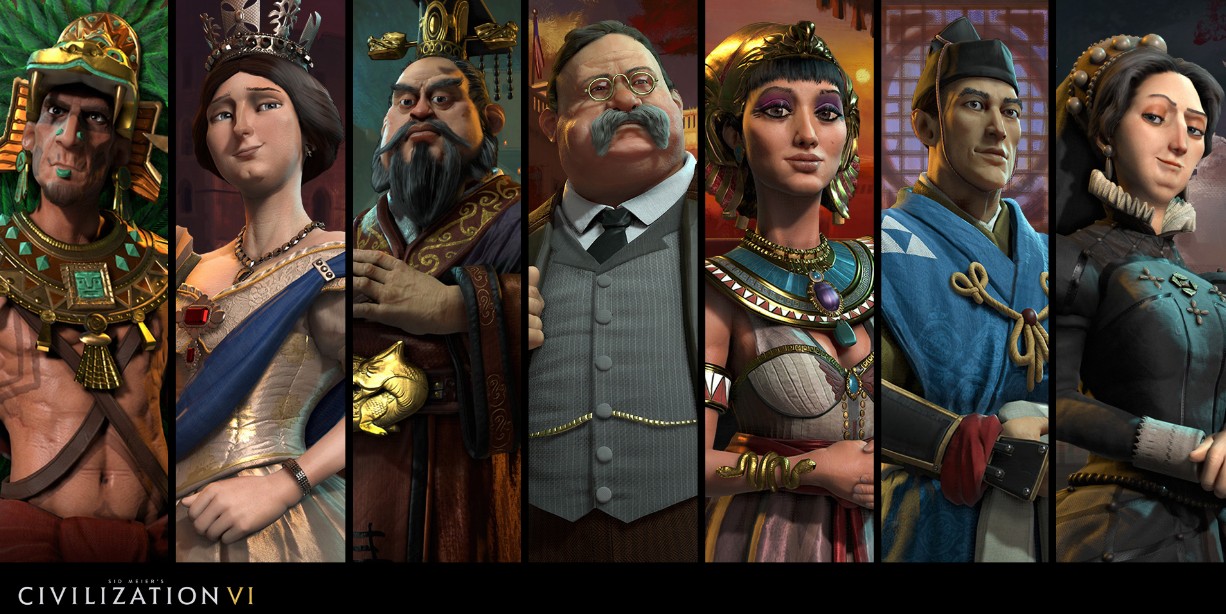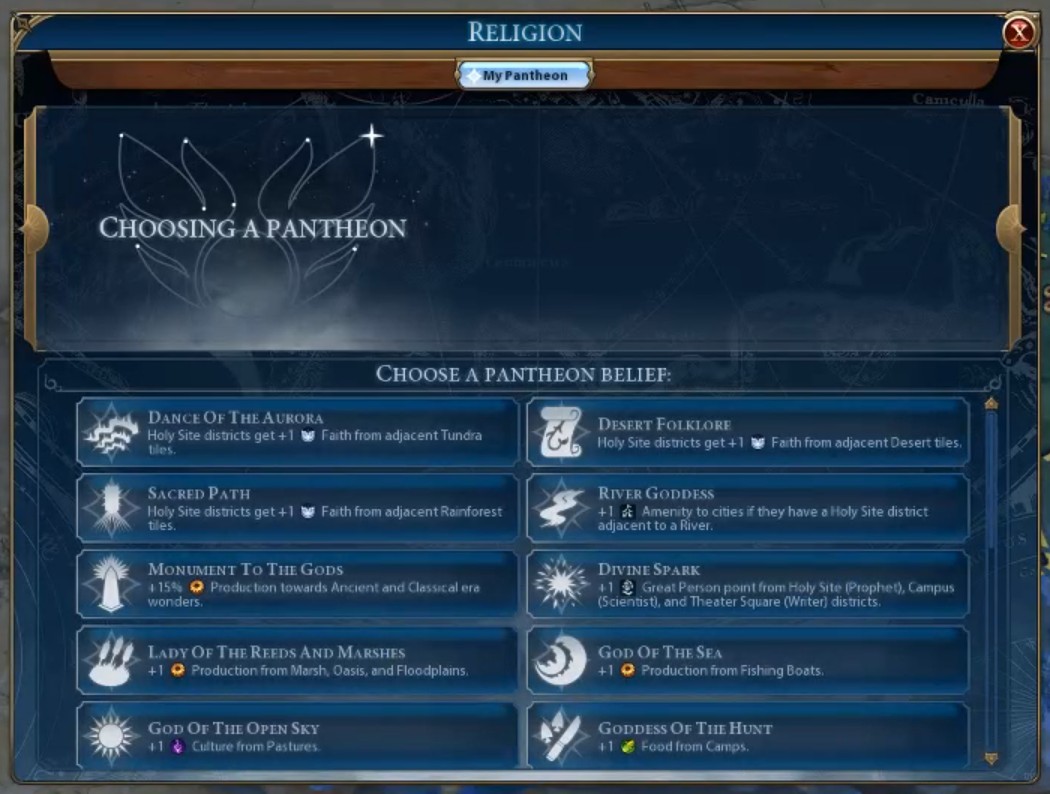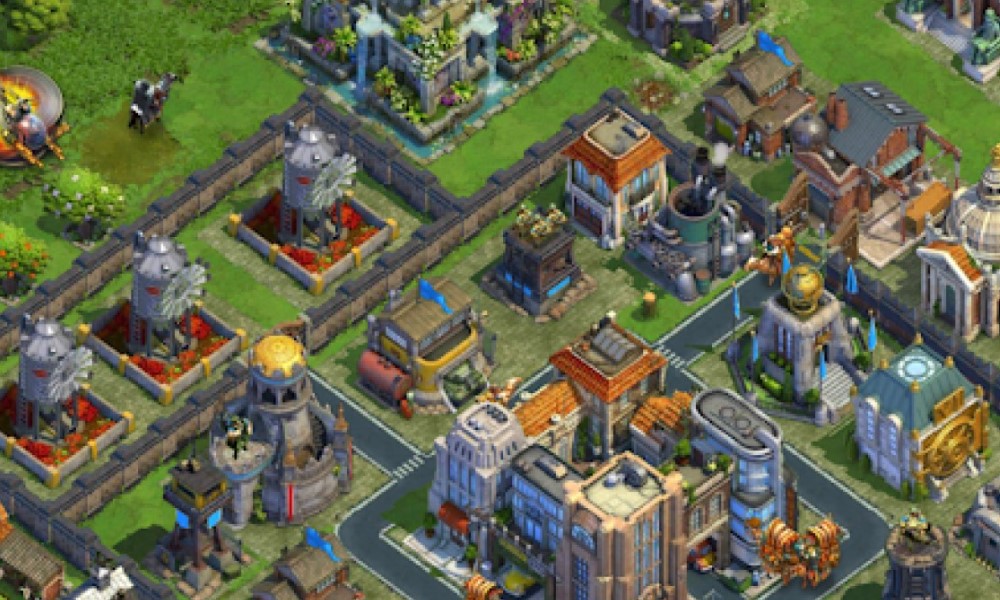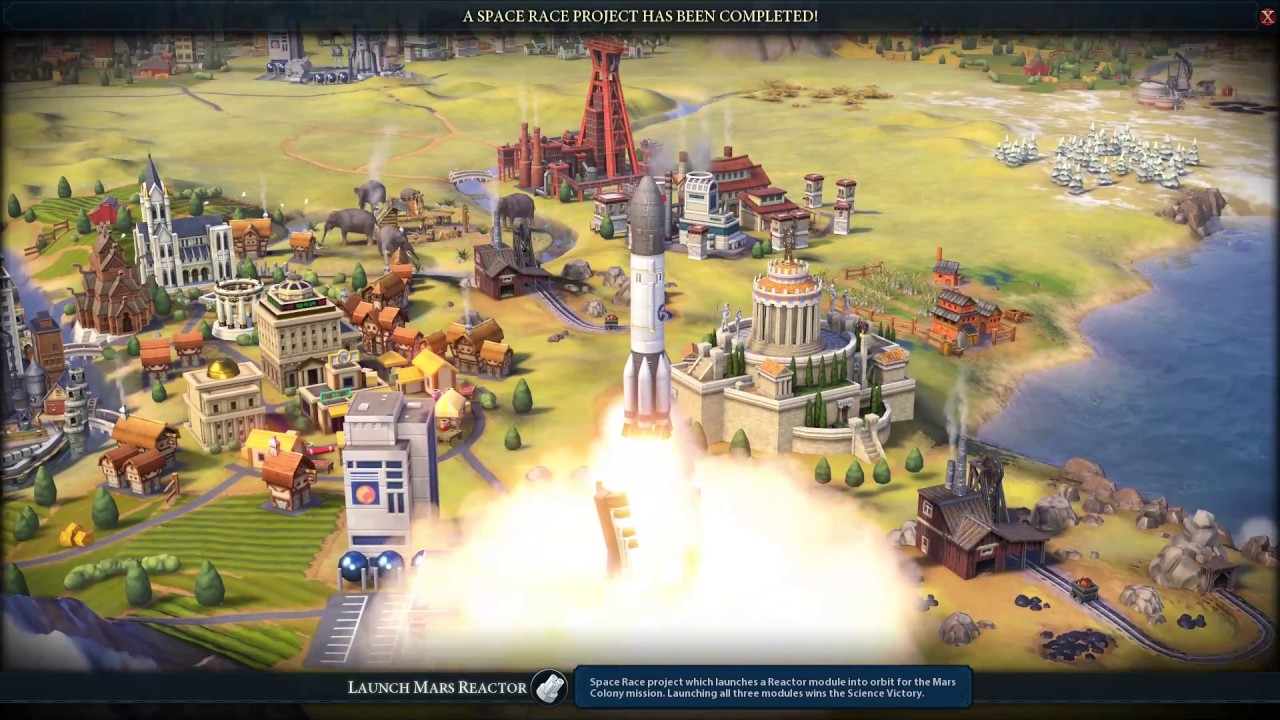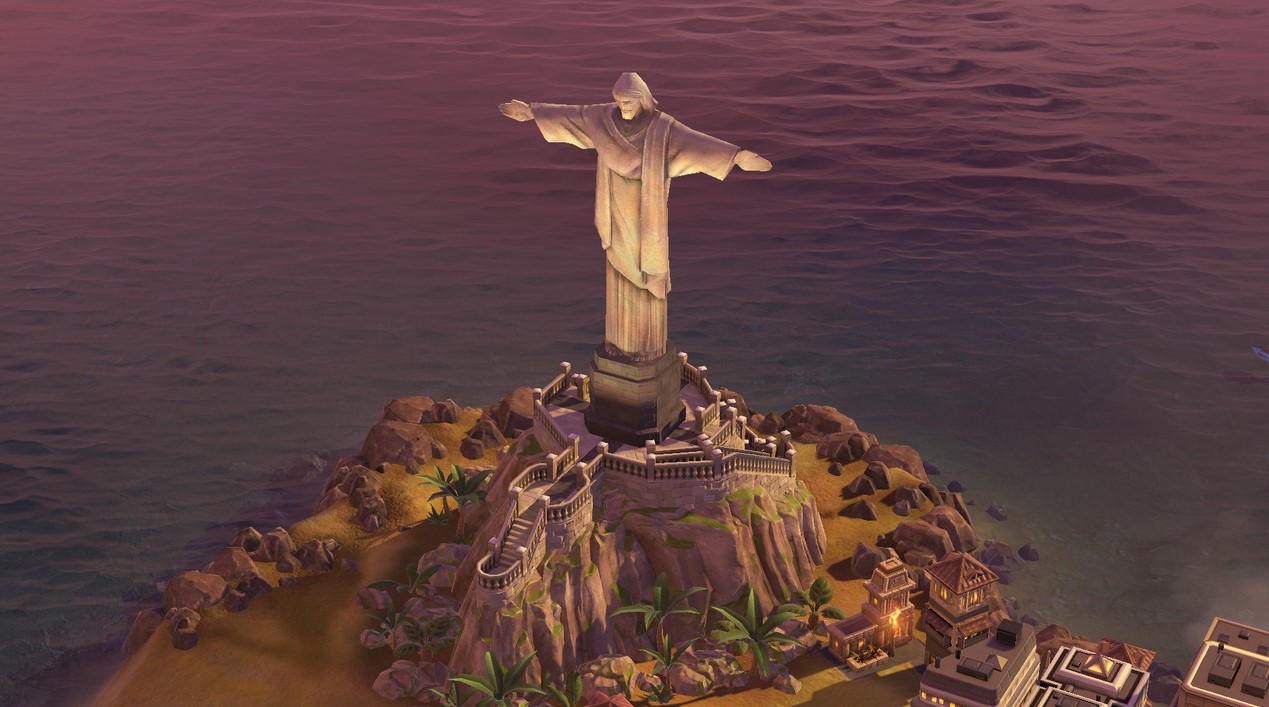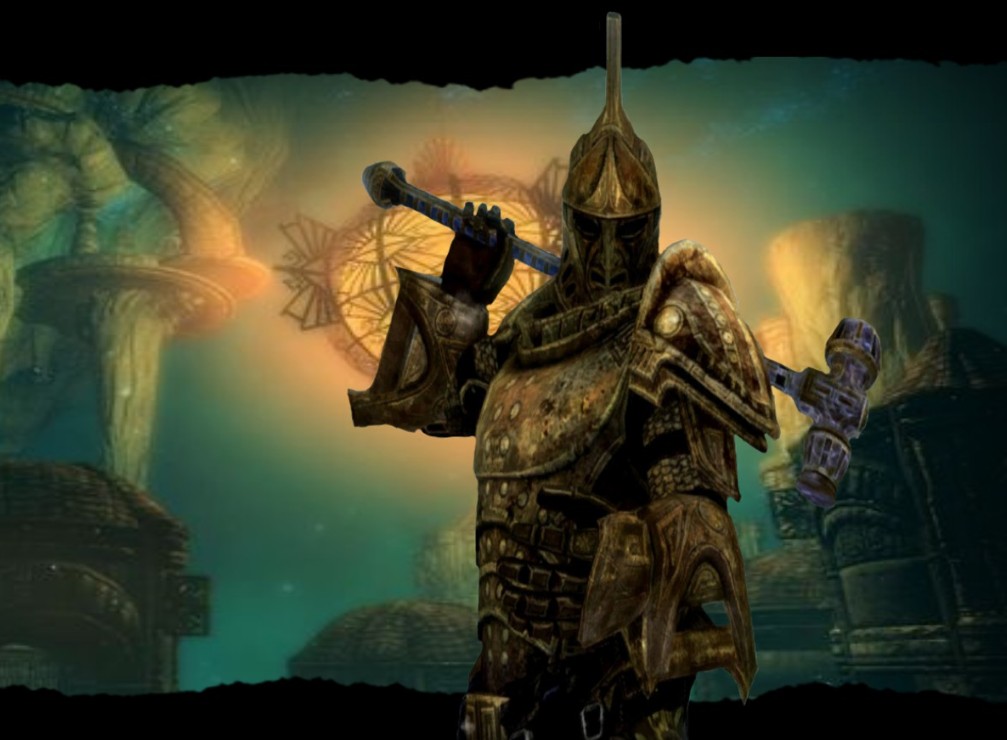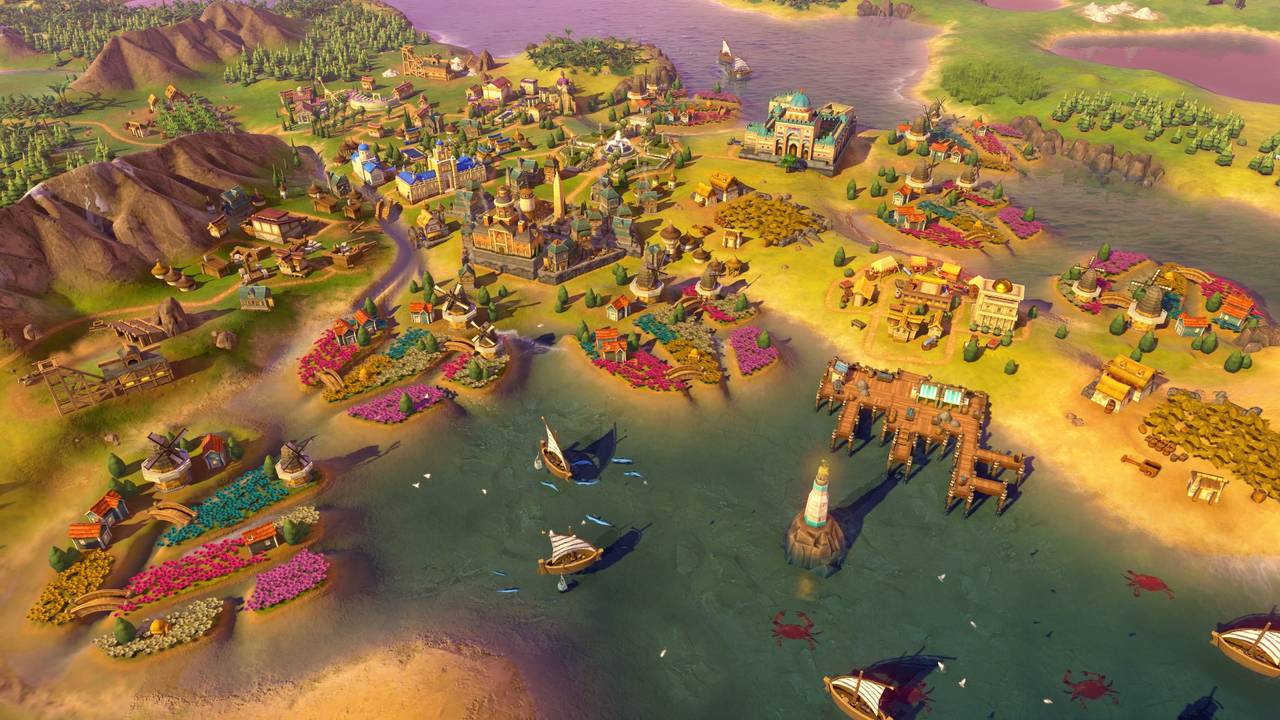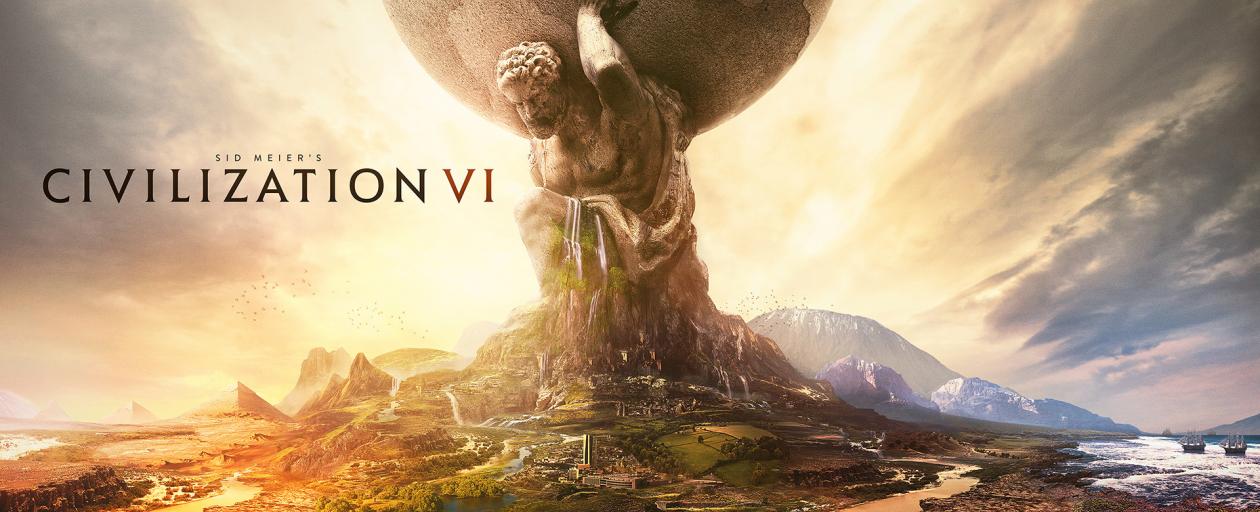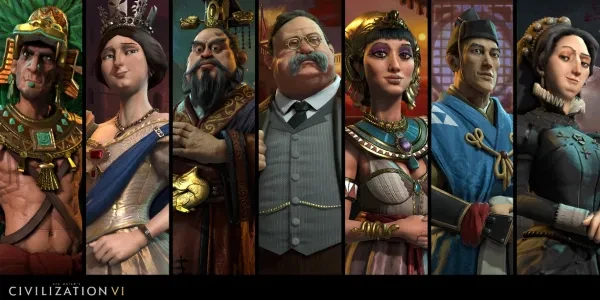
Play any way you want with these all-around civs
It’s a big, chaotic world out there, and if you’re not well-balanced, there’s plenty a barbarian to help you fall. Let’s take a look at some of the most well-rounded civs and find out how to keep out those damn barbarians.
10. Nubia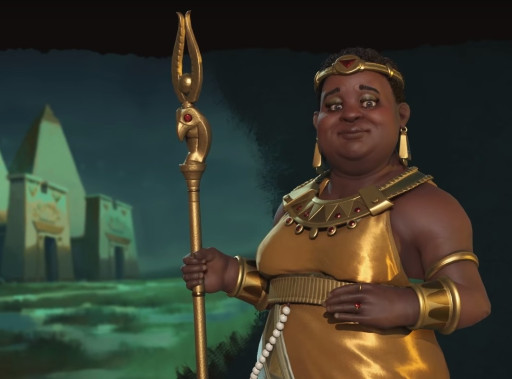
Nubia led by Amanitore shows what it takes to be a well-balanced civ with bonus production and strong early game.
Nubia has a base 20% increase to district production, and the Nubian Pyramid when built adjacent to city centers, doubles that bonus.
Coupled with the quickly built Pítati Archer, Nubia is extremely defensible with minimum units, freeing up production for infrastructure.
Nubia Strengths:
- Incredible 20-40% production bonuses for districts starting in the ancient era.
- Nubia boasts a 50% production discount to all ranged units; mines give production and gold bonuses.
- The Pítati Archer has increased ranged and melee strength as well as movement points, all for less than a normal archer.
Nubia Weaknesses:
- Nubian pyramids can only be built on desert tiles, making city placement somewhat limited.
- After a district’s construction, cities receive no bonuses toward district buildings, making growth stall after the initial spike.
- Nubia has no bonuses to culture or science, forcing Amanitore to use much of her bonus production on those district types.
What makes Nubia a good all-rounder:
- Nubia’s massive bonus to all district types gives them extreme flexibility.
- True to their ancient roots, Nubia’s Pítati Archers can be quickly mass-produced for early offense or defense.
- Production/ranged bonuses allows Nubia to quickly adapt and fill any weak spots.
9. Macedon
Alexander makes his Civ VI appearance as the leader of his father's mighty Macedonian army; bringing with him the new Hypaspist and Hetairoi.
The Basilikoi Paides, his unique barracks improvement, complements his army by providing extra resource stockpiles and bonus science for created units.
Alexander enjoys a wealth of military, science and culture bonuses such as inspirations and eurekas for capturing cities with certain districts.
Macedon Strengths:
- Macedon takes the term “military science” to heart; units created through the Basilikoi provide bonus science equal to 25% of their cost.
- All military units gain full health when Alexander captures a city with a wonder; most districts in captured cities provide eurekas and inspirations.
- Like his father King Philip II, Alexander stays true to form and is capable of fielding massive armies while advancing his technologies, waging war on all fronts.
Macedon Weaknesses:
- Must continue to build units to get bonus science; most bonuses are not applicable unless you are actively at war (and winning).
- With higher production costs, his two unique units can be difficult to field.
- Most bonuses are not applicable unless you are actively at war (and winning).
What makes Macedon a good all-rounder:
- While most would say that Alexander is primarily a military-type leader, he can also be a strong contender for science and culture.
- “There is no shame in deterrence.” Having a standing army is always a good idea, might as well get science for it.
- Capturing a well-developed city just for the tech and civic boosts keep Macedon in the game in every way.
8. Australia
Prime Minister John Curtin of Australia brings a full repertoire of powerful bonuses as well as the Diggers of WWI fame.
Australia can essentially terraform (Austraform if you will) entire areas with the Outback Station; making otherwise weak tiles a boon of production and food.
In addition, pasture improvements culture bomb adjacent tiles, and districts gain bonus yields for high appeal tiles.
Australia Strengths:
- Outback stations are ludicrously powerful, with production and food bonuses for adjacent pastures and other outback stations.
- With districts gaining additional yields for the appeal, Australia can advance quickly in all fields.
- Liberating a city-state or receiving a declaration of war doubles Australia’s production; Diggers can gain up to +15 attack on foreign soil.
Australia Weaknesses:
- One of the production bonuses is activated by liberating a city, instead of gaining one.
- Australia’s unique unit doesn’t come into play until the modern era, making the early-game somewhat slow and dangerous.
- Diggers’ main bonus (Attack+10) only activates on coastal tiles.
What Makes Australia a good all-rounder:
- Australia gets yield bonuses to campus, commercial, holy and theatre districts, making them potentially powerful in any direction.
- Outback Stations gain additional production and food yields automatically as you progress, making desert tiles solid from the jump.
- Australia’s huge production bonus for being attacked allows you to bait other civs and then counter with Diggers.
7. Empire of Kongo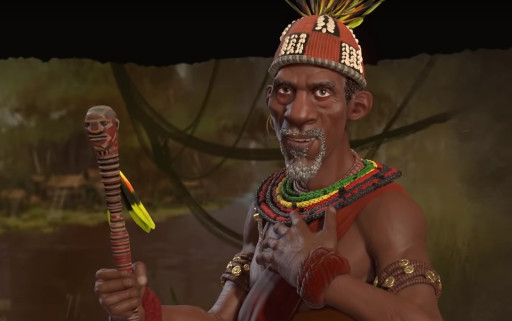
With massive bonuses to culture, art, and gold, we have The Empire of Kongo led by Mvemba A Nzinga (try saying that three times fast.)
As per the legend, Mvemba came to power by way of faith, demonstrated by the Kongo’s massive bonuses for religion and culture.
Their Ngao Mbeba, which replaces swordsmen, is ideal for offense or defense.
Kongo’s Strengths:
- Kongo can’t win a religious victory, but they still get all the belief bonuses of their cities’ majority religion, freeing up resources.
- Their Nkisi unique ability gives bonus food, production, gold, and great person points.
- The Mbanza, Congo’s unique neighborhood district, makes use of rainforest tiles by providing housing, gold, and food.
Kongo’s Weaknesses:
- Even though it is also a strength, Kongo’s inability to found a religion completely takes them off the table for a religious victory.
- Their unique unit, while powerful, is also significantly more expensive than the swordsman, making them difficult to field.
- Once you’re past the Classical era, Kongo has no more military bonuses, making them potentially vulnerable.
What makes Empire of Kongo a good all-rounder:
- Kongo’s ability to quickly generate great people combines with its art bonuses to gain massive culture.
- Since Kongo gains different religions, you’ll often find religious buildings and beliefs to help boost you in every way.
- Being able to use rainforests or woods for gold, food, and housing helps grow the Kongolese Empire tall.
6. The Greek Empire led by Pericles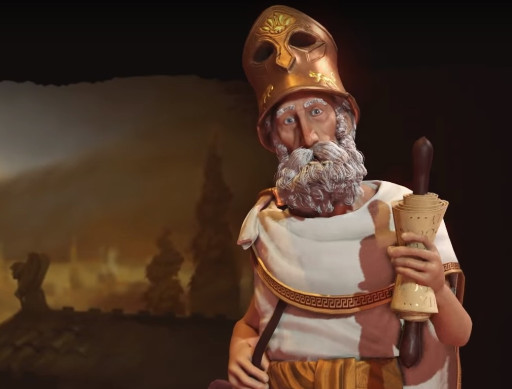
The Greek Empire is lead by Pericles, aptly called “The First Citizen of Athens”.
In ancient Greece, a strategos, or military governor was someone talented both as a general and politician, and Pericles fits the role with bonuses to city-state loyalty, culture, and ancient era warfare.
History has shown us that the ancient Greeks will live or die by their ability to work together and Pericles unites city-states with the Greek Empire.
The Greek Empire Strengths:
- The Greeks have an extra Wildcard policy slot in any government.
- The Hoplite, Greece’s famed spearman, gains a +10 to combat strength for at least one adjacent Hoplite.
- Pericles receives a massive +5% culture bonus per city-state it has suzerainty over; coupled with it’s Acropolis’ culture and envoy bonus, Greece is a cultural tank.
The Greek Empire Weaknesses:
- Solitary Hoplites are just spearmen, and vulnerable to regular melee units.
- While Greece excels in culture, the Acropolis can only be built on hills, and no other district receives any bonuses.
- Greece is extremely reliant on city-states, making them vulnerable to Civs like Germany and Hungary.
What makes The Greek Empire a good all-rounder:
- Culture is the lifeblood of the civic tree, and with Pericles’ culture game your blood will be as rich as ichor.
- City-states can give truly herculean boons to their suzerain, and Greece’s ability to spam envoys with a click feels like having the Touch of Midas. (These Greek mythology references doin’ anything for you?)
- The extra wildcard slot means getting political policies quickly, allowing you to jump-start your own political odyssey. (OK I promise that’s the last one.)
5. The Korean Empire
Buddhist Queen Seondeok ruled at a violent and volatile time in Korean history when being Buddhist and a queen were particularly dangerous.
Held by most to be a great ruler, she dedicated resources to defending the people of Korea and to scientific pursuits in astronomy.
As Queen Seondeok you gain massive science and culture bonuses, along with the powerful campus replacement, the Seowon.
Korean Empire Strengths:
- Every governed city gets a +3% bonus to science and culture output for each governor promotion, up to a max of 15%.
- Farms and mines adjacent to a Seowon receive a +1 bonus to food and science, respectively.
- The Hwacha is available faster and costs less than the field cannon, which it replaces.
Korean Empire Weaknesses:
- The Seowon, Korea’s unique campus district must be built on hills.
- The Hwacha is no more powerful than the field cannon, is weaker in melee strength, and cannot attack before moving.
- Governors need at least a few promotions before their bonuses to science/culture really start paying off.
What makes The Korean Empire a good all-rounder:
- Seondok so easily gains science and culture, she can focus more resources on faith, gold, etc.
- The Hwacha has its downsides but as a defensive unit, it is extremely efficient in forts.
- The governor's science and culture bonuses can be applied to any city, giving her extreme flexibility.
4. The Japanese Empire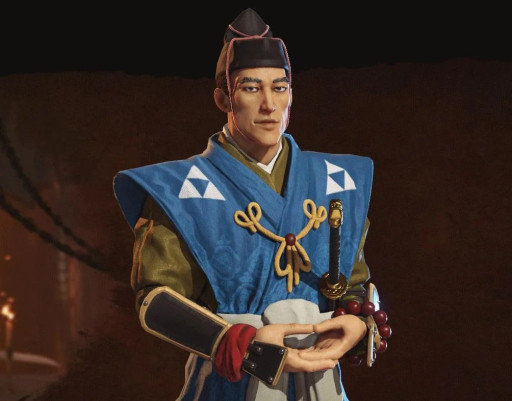
Under Hojo Tokimune's rule, Japan's deadly typhoons deflected the feared Mongol Empire, coining the term “kamikaze” or “divine wind”.
During the Meiji Restoration, Japan’s tradition of isolation was broken, giving rise to a cultural explosion.
Given their long and rich history, Japan receives bonuses in all major district types, making them as formidable as the legendary Samurai.
Japan’s Strengths:
- Japan’s military units are more powerful near coasts and hurricanes act as a deterrent against would-be invaders.
- Several districts are cheaper to build; the Electronics Factory gives additional production and culture yields to multiple cities.
- The mighty Samurai return, doing maximum damage at any cost; never give up, never surrender.
Japan’s Weaknesses:
- While the hurricane or “divine wind” is impressive, it is uncontrollable and unreliable.
- Japan’s electronics factory doesn’t come along until the Industrial era.
- Samurai can be purchased or produced, but cannot be upgraded from swordsmen.
What makes The Japanese Empire a good all-rounder:
- Japan’s district adjacency bonuses give boosts to every main yield.
- Samurai can cut down any contemporary military units; making them ideal for offense or defense.
- With a rich military, cultural, and religious history, Japan is an ideal all-round civ.
3. The Russian Empire
Always a patron of the arts and sciences, Russia receives bonus science and culture for trade routes to more advanced civs.
Additionally, land hexes are gained more quickly and the Lavra (holy site replacement) furthers this gain.
Russia’s Strengths:
- The science and culture bonus gives each trade route 3 yields minimum.
- Bonus production and faith yields to tundra make the “Dance of the Aurora” pantheon perfect for Russia.
- Freezing blizzards destroy Russia’s many would-be invaders, proving that those who ignore history are doomed to repeat it.
Russia’s Weaknesses:
- Russia’s trade route bonus only activates with more advanced civs, making its use somewhat counter-intuitive.
- Tundra is still tundra, so food sources are sometimes a problem.
- Cossacks are only marginally stronger than cavalry and only receive a bonus for fighting in or near home territory.
What makes Russia a good all-rounder:
- Russia gets bonuses in science, culture, production, and faith, the last of which, can fittingly snowball in the tundra.
- Russia can use it’s large faith yield to recruit many types of great people.
- The Motherland, covering huge areas will net you the resources for any type of victory.
2. The Roman Empire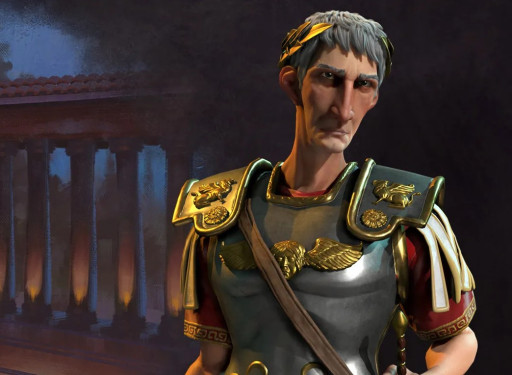
Barbarian hordes and psychopathic megalomaniacs aside, the Roman Empire is the archetypal all-around civ.
While Roman Legions expand the empire, the unique Bath district gives cities bonuses to housing and amenities.
The famously philanthropic Trajan gives all founded or conquered cities a path to the capital, proving that all roads do indeed lead to Rome.
The Roman Empire Strengths:
- Trajan’s architectural abilities shine with sprawling roads automatically built and the Bath’s housing and amenity bonuses.
- Roman Legions are stronger than their swordsman counterpart and can build a Roman fort.
- Rome’s cities start with a trading post and provide additional gold to passing traders.
The Roman Empire Weaknesses:
- Rome has no bonus yields to anything except gold and amenities.
- The Roman Legion is slightly more expensive than the swordsman.
- As an expansionist civ, conflicts with other civs may limit potential trade routes.
What makes Rome a good all-rounder:
- Starting with roads is a huge plus as units can move between cities easily.
- Rome builds the bath extremely quickly, giving cities room to build many districts.
- The Roman Fort can be used defensively or offensively when besieging cities.
1. The Incan Empire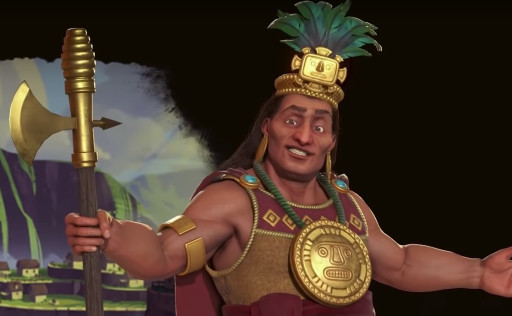
The Incans are the only civ that may work mountain tiles giving them a distinct defensive advantage.
In addition, the Incan build early mountain tunnels called Qhapaq Ñan, which allow traders and units to travel through the otherwise impassable terrain.
Incan Empire Strengths:
- The ability to live amongst mountains makes the Inca incredibly difficult to attack.
- The Terrace Farm offers bonus food, housing, and production from other Terrace Farms, and aqueducts, respectively.
- Traders that use the Qhapaq Ñan gain gold and food bonuses.
Incan Empire Weaknesses:
- The Inca have no bonuses to faith, science, or culture; their bonuses depend on the terrain.
- While mountains can be worked but not built on, making district placement somewhat difficult.
- Their unique unit, the Warak’aq, is a scout and not a primary military unit.
What makes The Incan Empire a good all-rounder:
- The Inca’s peculiar mountain bias lends bonuses to gold, science, food, and faith.
- The bonus housing of Terrace Farms helps Incan cities grow quick and tall.
- Mountains’ adjacency bonuses to appeal give the Inca bonus tourism toward a cultural victory as well.
You might also be interested in:
Do you agree with this author's choices?
Register here and let us know!

